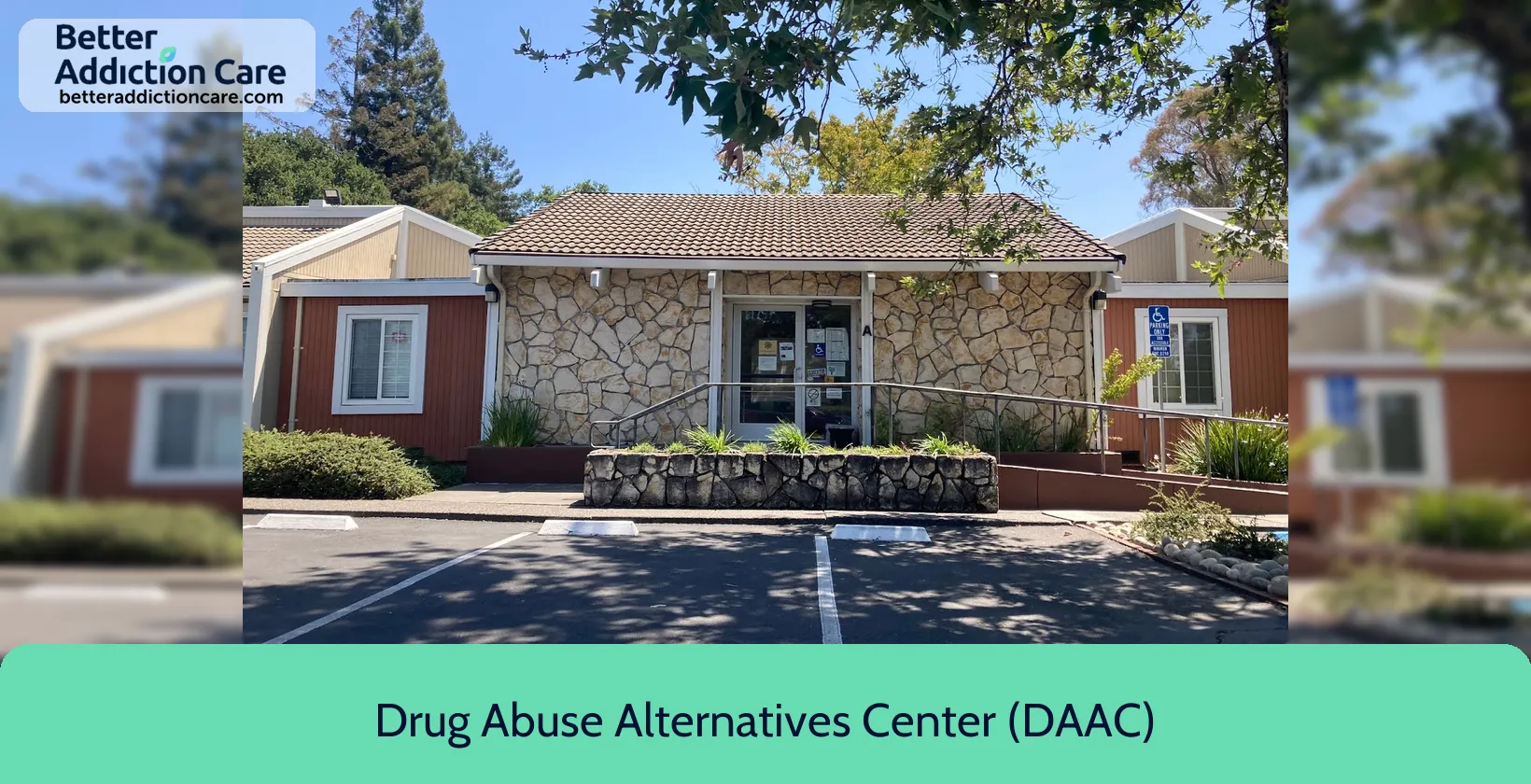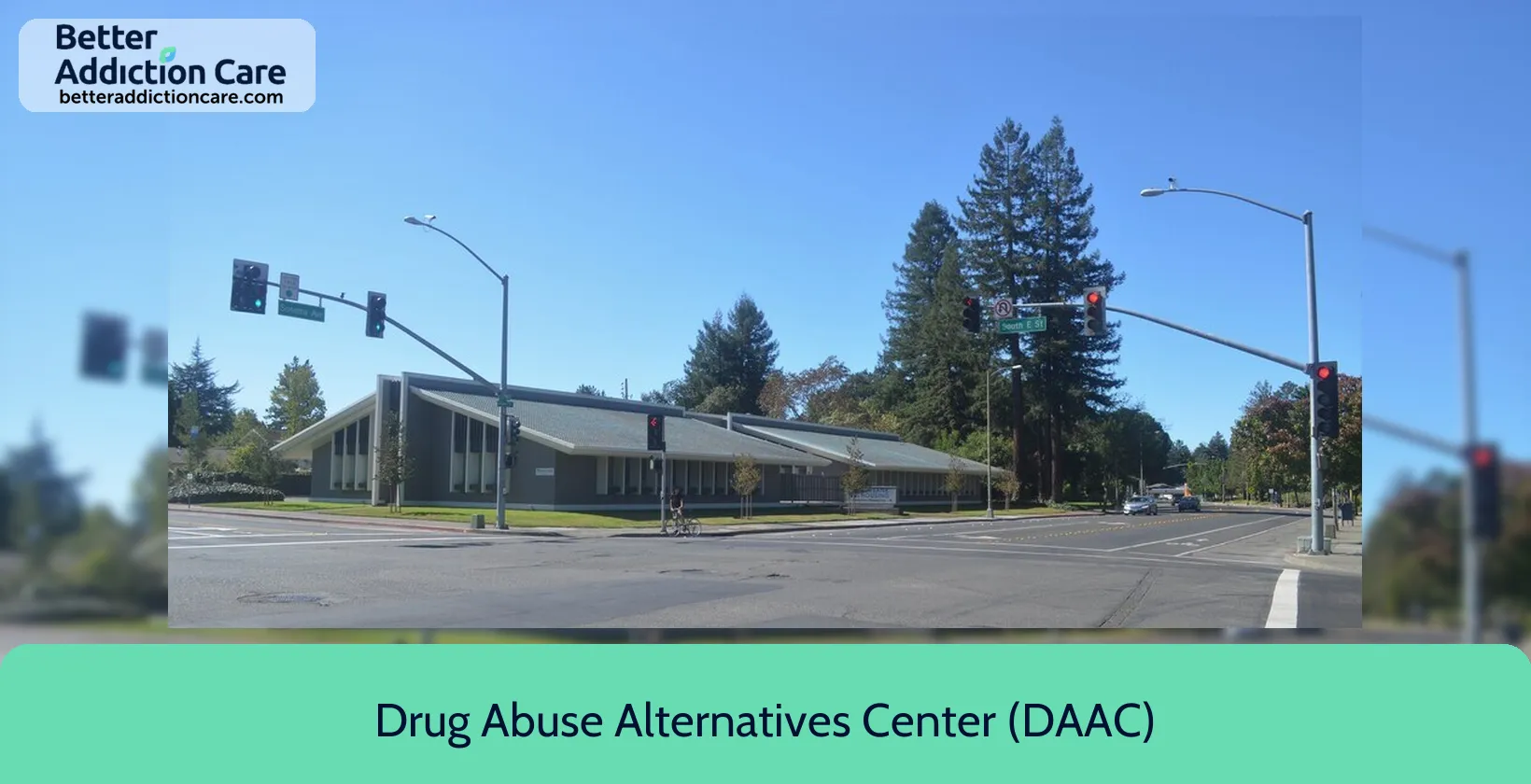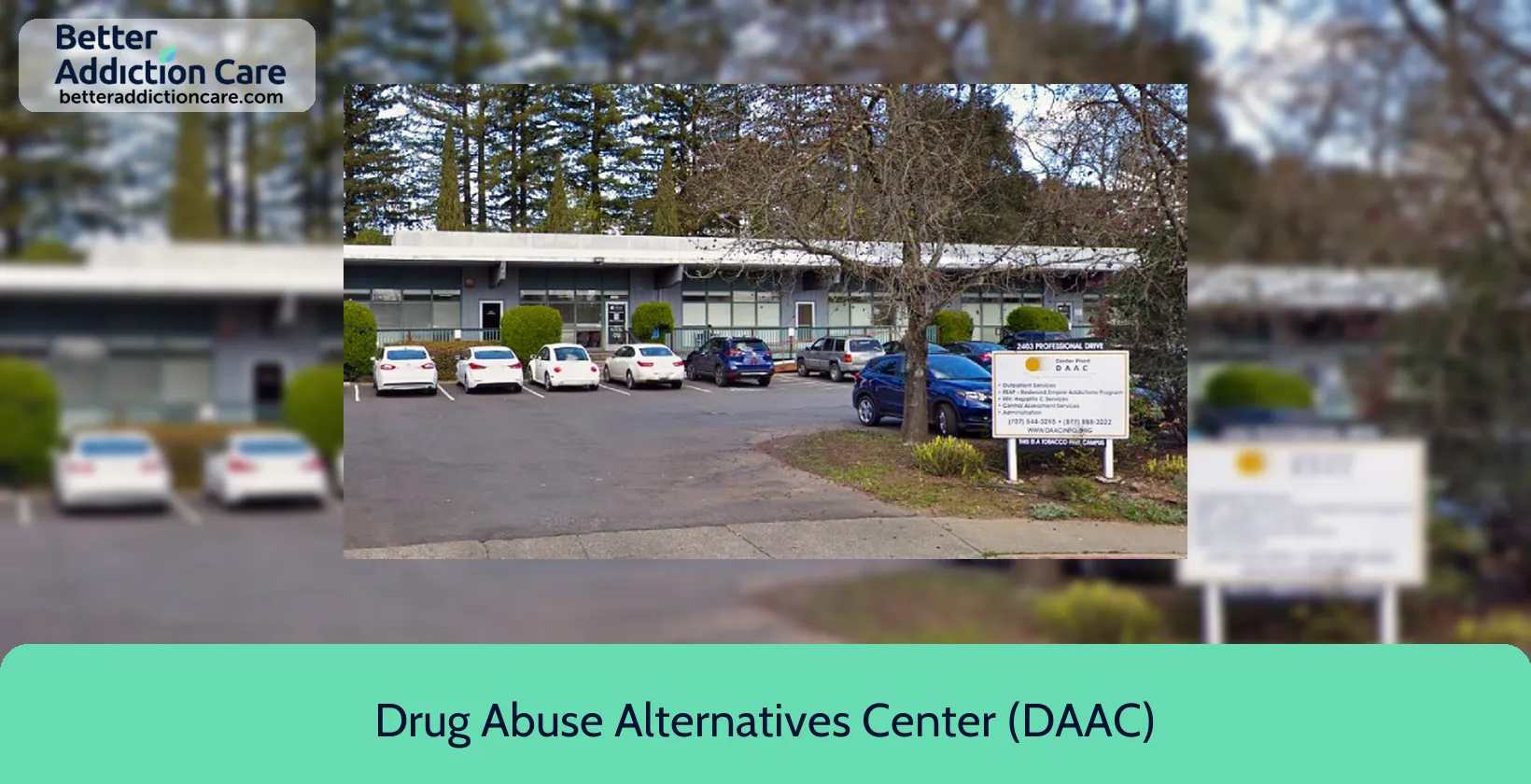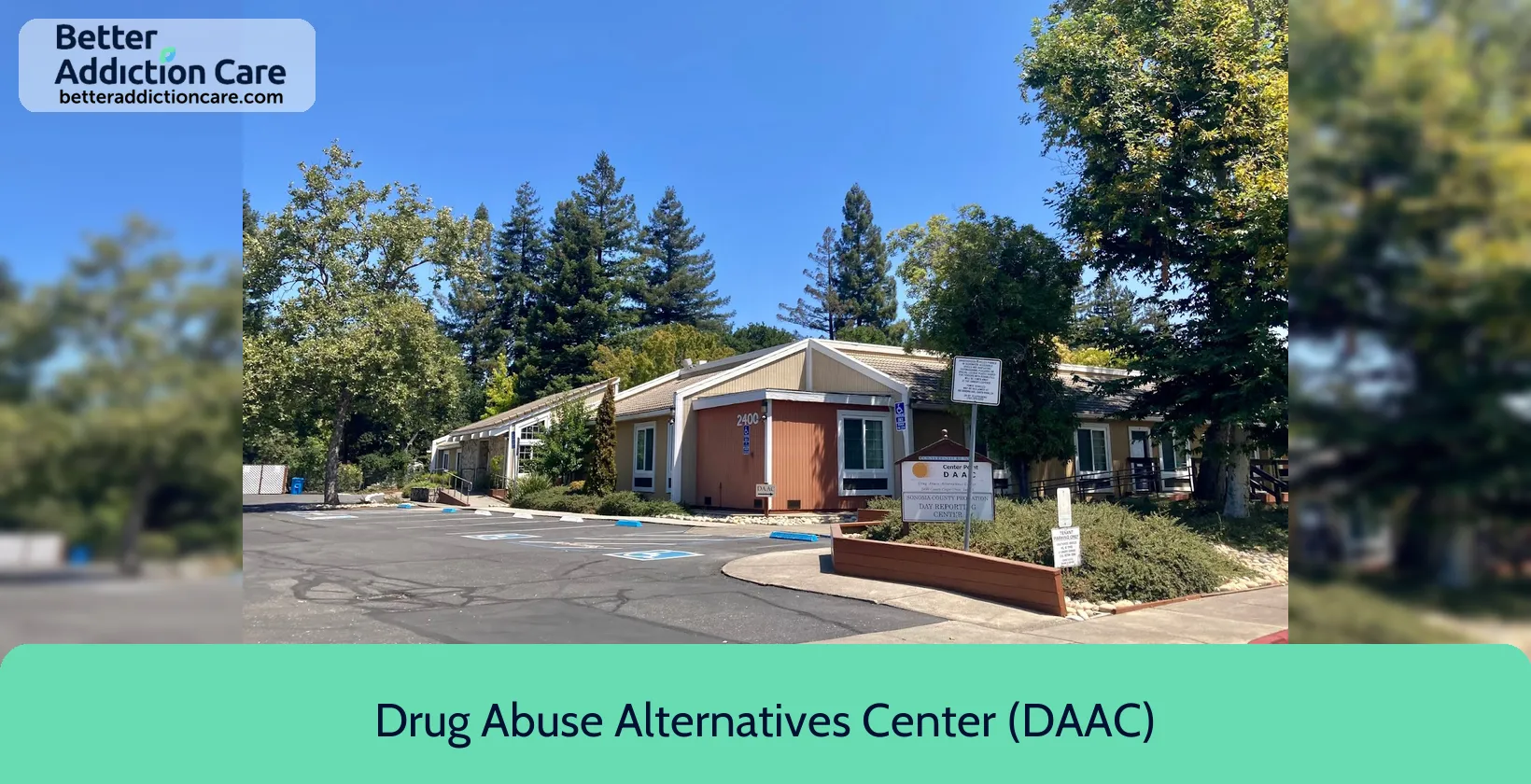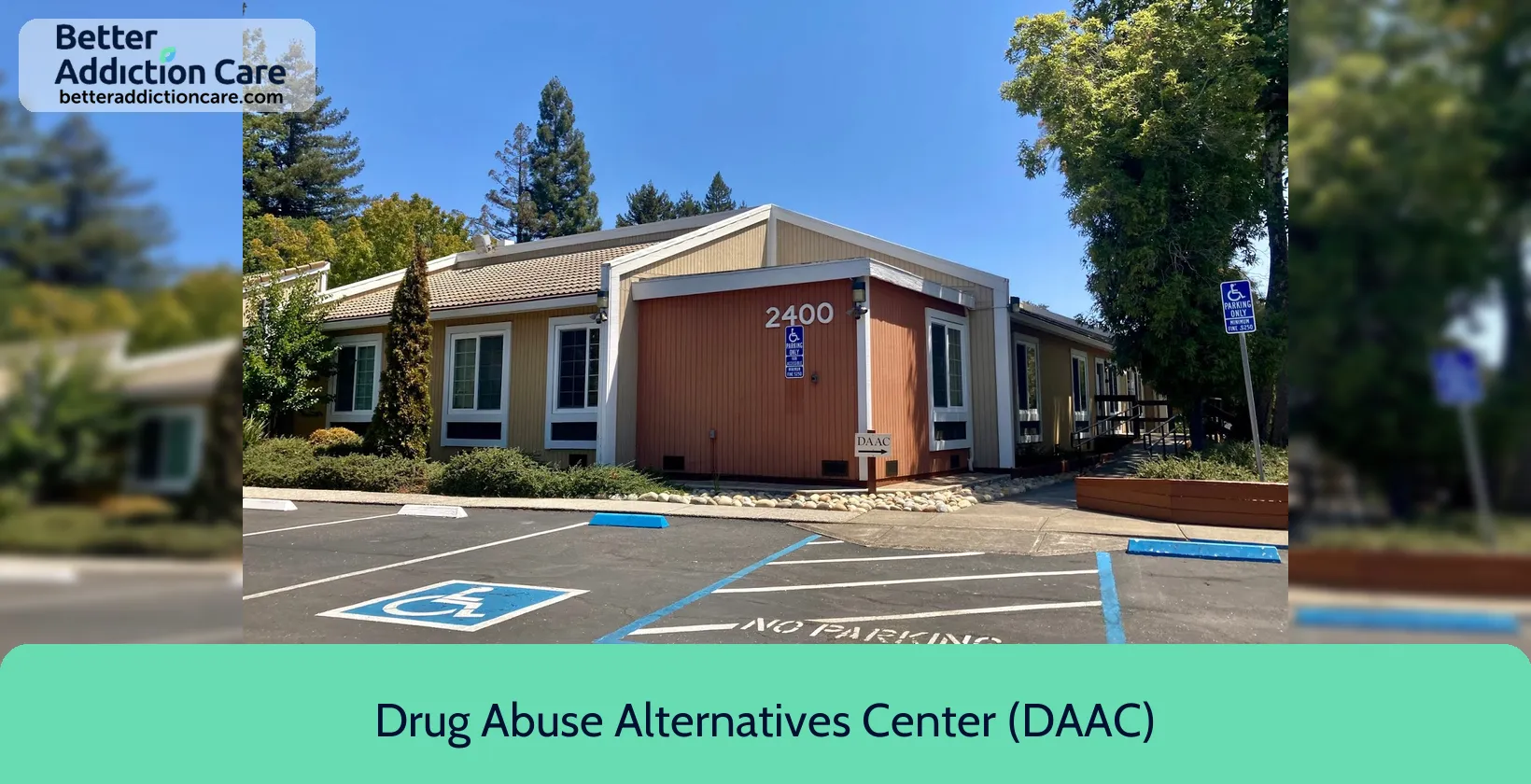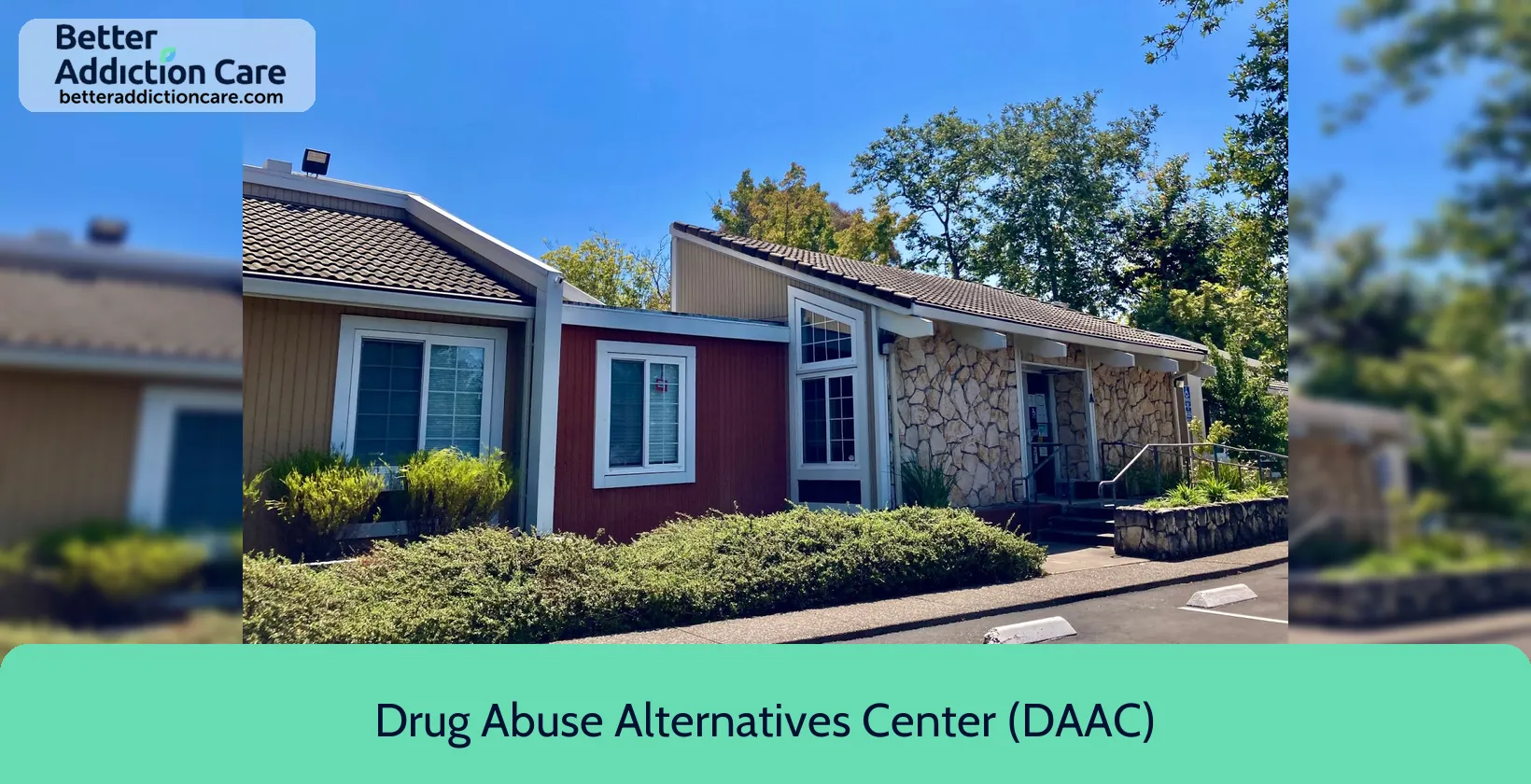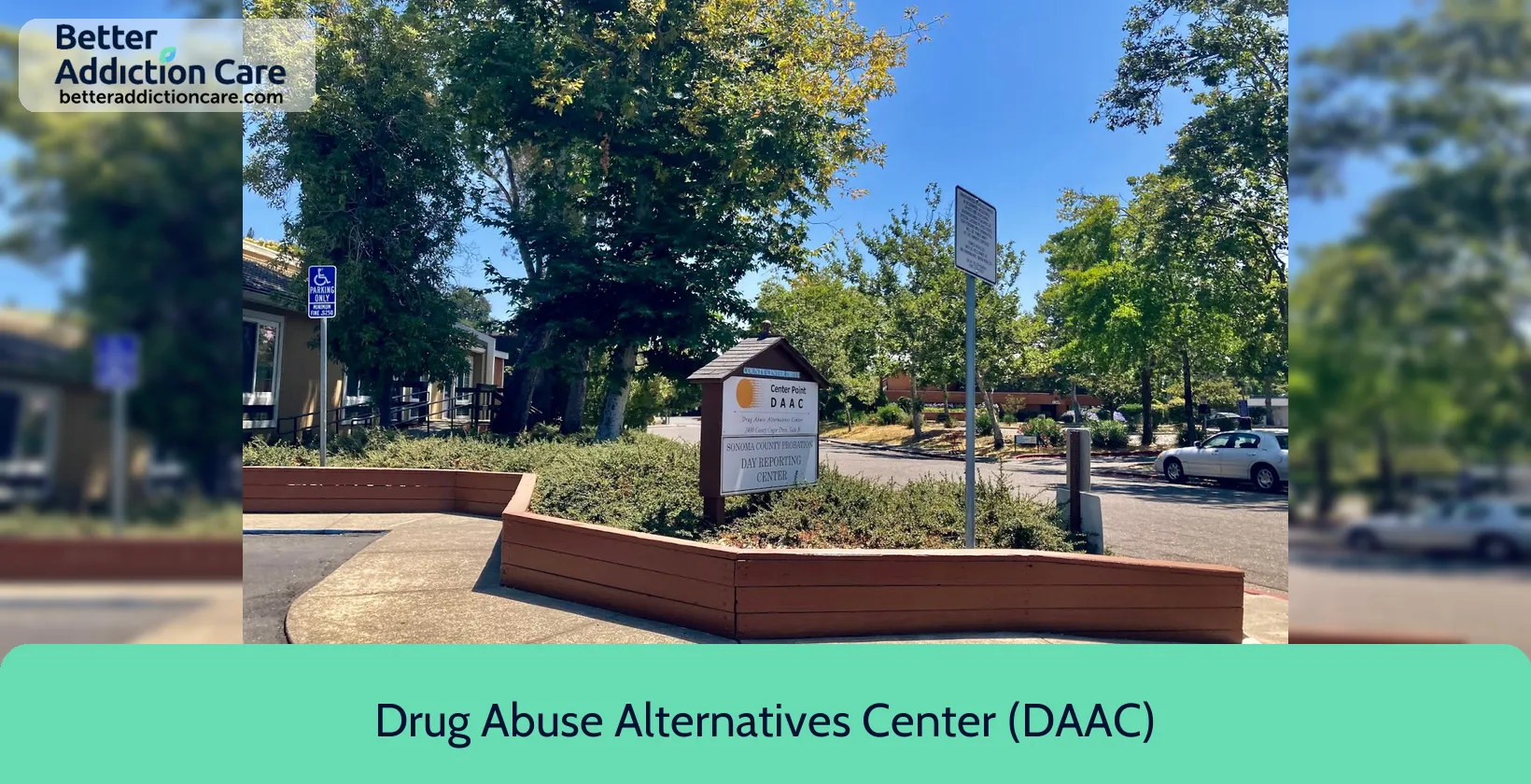Drug Abuse Alternatives Center (DAAC)
Overview
Drug Abuse Alternatives Center (DAAC) is a substance abuse treatment center for people seeking treatment near Sonoma County. As part of their treatment modalities for recovery, Drug Abuse Alternatives Center (DAAC) provides cognitive behavioral therapy, telemedicine/telehealth therapy, and substance use disorder counseling during treatment. Drug Abuse Alternatives Center (DAAC) is located in Santa Rosa, California, accepting cash or self-payment for treatment.
Drug Abuse Alternatives Center (DAAC) at a Glance
Payment Options
- Cash or self-payment
- State-financed health insurance plan other than Medicaid
- Private health insurance
- Federal, or any government funding for substance use treatment programs
Assessments
- Screening for tobacco use
- Comprehensive substance use assessment
- Outreach to persons in the community
- Screening for mental disorders
- Screening for substance use
Age Groups
- Young adults
- Adults
- Seniors
Ancillary Services
- Case management service
- Specially designed program for DUI/DWI clients
- Child care for client's children
- Social skills development
- Transportation assistance
Highlights About Drug Abuse Alternatives Center (DAAC)
6.83/10
With an overall rating of 6.83/10, this facility has following balanced range of services. Alcohol Rehabilitation: 8.00/10, Drug Rehab and Detox: 6.00/10, Insurance and Payments: 6.00/10, Treatment Options: 7.33/10.-
Alcohol Rehabilitation 8.00
-
Treatment Options 7.33
-
Drug Rehab and Detox 6.00
-
Insurance and Payments 6.00
Accreditations
State department of health:

Government agencies issue State Licenses, granting permission to rehabilitation organizations to conduct their business operations lawfully within specific geographic regions. Generally, the particular rehabilitation programs offered by a facility and its physical location dictate the necessary licenses needed for legal operation.
Treatment At Drug Abuse Alternatives Center (DAAC)
Treatment Conditions
- Alcoholism
- Substance use treatment
Care Levels
- Outpatient
- Intensive outpatient treatment
- Aftercare
Treatment Modalities
- Cognitive behavioral therapy
- Telemedicine/telehealth therapy
- Substance use disorder counseling
- Trauma-related counseling
- Group counseling
Ancillary Services
Languages
- Sign language services for the deaf and hard of hearing
- Spanish
Additional Services
- Pharmacotherapies administered during treatment
- Mentoring/peer support
- Breathalyzer or blood alcohol testing
Special Programs
- Criminal justice (other than DUI/DWI)/Forensic clients
- Pregnant/postpartum women
- Clients who have experienced sexual abuse
- Clients who have experienced intimate partner violence, domestic violence
- Clients who have experienced trauma
Get Help Now
Common Questions About Drug Abuse Alternatives Center (DAAC)
Contact Information
Other Facilities in Santa Rosa

6.92

6.80

6.68

6.68

6.92
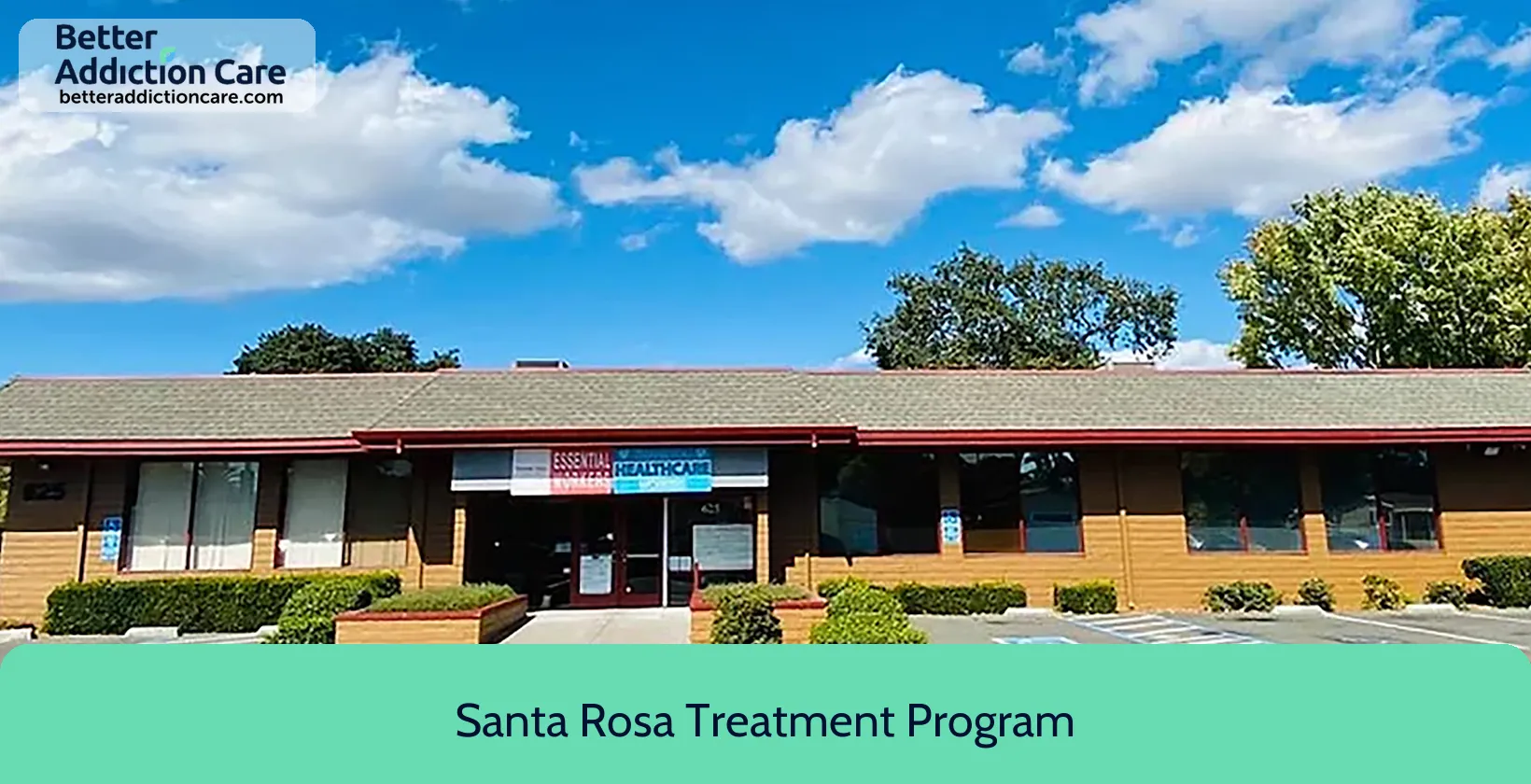
6.76
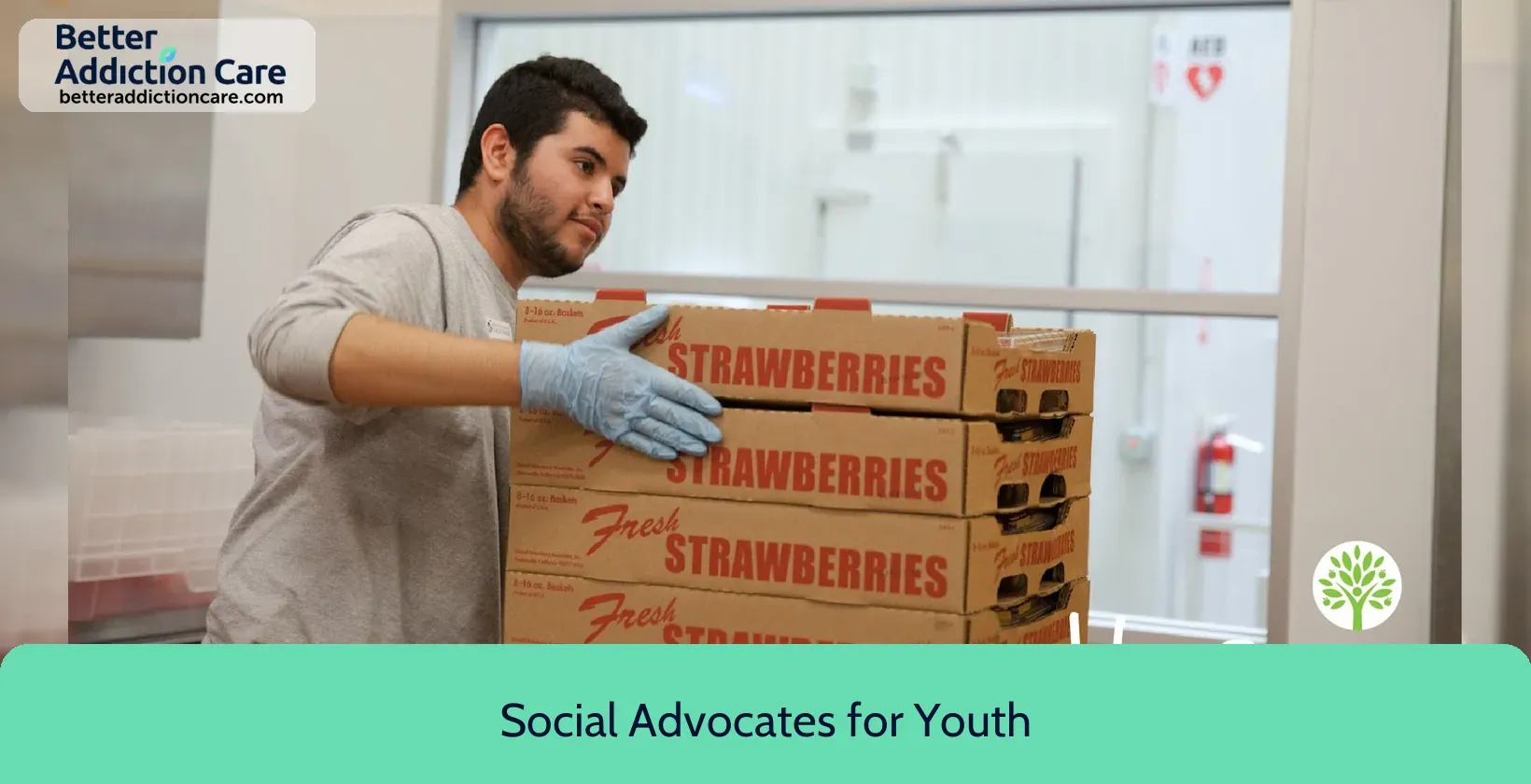
6.59
DISCLAIMER: The facility name, logo and brand are the property and registered trademarks of Social Advocates for Youth, and are being used for identification and informational purposes only. Use of these names, logos and brands shall not imply endorsement. BetterAddictionCare.com is not affiliated with or sponsored by Social Advocates for Youth.
